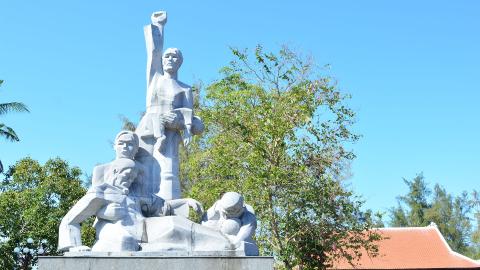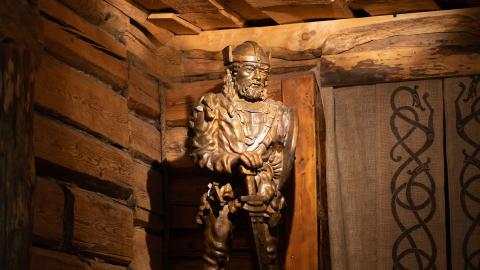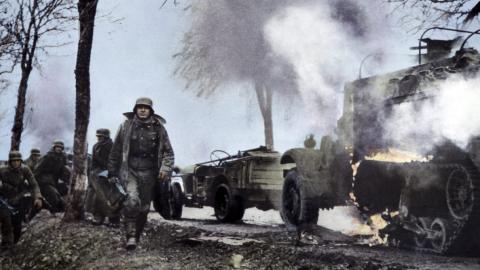John Edgar Hoover
The affairs of the man who spent his life at the helm of the FBI were as shady as the people's names he muddied. His story is made for the conspiracy theorists.
John Edgar Hoover was born on New Years Day to parents Dickerson Naylor and Annie Marie Scheitlin. He had a brother, Dickerson Jnr., and a sister, Lillian, who were both over ten years older than him, as well as another sister, Sadie Marguerite, born five years before him but who later died of diphtheria.
Hoover supported his family after the early death of his father. After taking evening classes, he graduated with a degree in law in 1917, and joined the US Department of Justice.
Named Assistant to the Attorney General in November 1918, from 1919 to 1921, he worked on the Palmer Raids, a series of roundups in American cities, which resulted in the arrest of thousands of citizens and deportation of hundreds of immigrants.
These individuals were alleged to be communists, socialists, anarchists and radicals, and were charged with attempting to overthrow the government by force and violence.
In 1924, he was appointed director of the Bureau of Investigation, which was renamed the FBI in 1935, and Hoover reduced much of the inefficiency and corruption that existed within the agency. He achieved this by firing a number of agents whom he considered to be political appointees or unqualified for the position. For new agents, he brought in background checks, interviews and physical training. Hoover also revived the old Bureau tradition of giving agents accounting and legal training.
He established centralised fingerprint and statistical files, began a crime laboratory and introduced a training academy. In the early 1930s, Hoover began a war on "public enemies" to capture organised crime leaders, such as "Pretty Boy" Floyd and "Baby Face" Nelson.
While he was unsuccessful in weakening organised crime, his campaign raised the profile of the FBI. During World War II, Hoover was in charge of protecting the United States from enemy agents. During the 1940s and 1950s, the Bureau garnered headlines for its staunch efforts against Nazi and Communist espionage.
As the Cold War developed, Hoover pursued the organisations and individuals, which he believed to be communist, with the vigour he had exhibited in the Palmer Raids. US president Roosevelt tasked the Bureau with running a foreign intelligence service in the western hemisphere during the Cold War. It was dubbed the Special Intelligence Service or SIS.
It also took on the task of investigating the background of government staff to ensure foreign agents did not infiltrate it. At this time, more traditional crimes such as car thefts, bank robberies and kidnapping remained important.
In the 1960s and 1970s, Hoover's Bureau took on investigations in the field of civil rights and organised crime as well as the threat of political violence. By this time, Hoover was over 65 years old but the president wanted to keep him at the helm.
Hoover was a controversial figure. He served under eight Presidents and secured a tremendous degree of personal power. His obsessive pursuit of left-wing, and other allegedly "dangerous", organisations caused many to accuse him of violating civil rights and prosecuting personal vendettas.
When J. Edgar Hoover died in his sleep on 2 May 1972 aged 77, he had led the FBI for 48 years.
Rumours existed both during his lifetime and after his death that Hoover was a homosexual as he never married. It was thought that Clyde Tolson, the associate director of the FBI and Hoover's heir, was his lover.
They ate meals together, worked closely together, went to nightclubs together and vacationed together. Tolson inherited Hoover's estate after his death and is buried close to him at the Congressional Cemetery.
However, Hoover hunted down and threatened anyone who insinuated things about his sexuality. He was also romantically linked to actress Dorothy Lamour in the 1930s and 1940s. During the 1940s and 1950s, Hoover was often accompanied by Lela Rogers and many of their mutual friends thought they would marry.
In 2011, Clint Eastwood directed 'J Edgar' starring Leonardo Di Caprio in the lead role, for which he was nominated for an Oscar. The film depicted his career and his life behind closed doors.
















